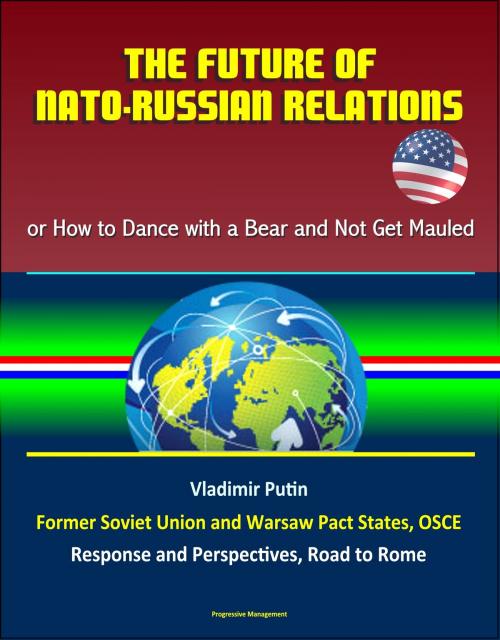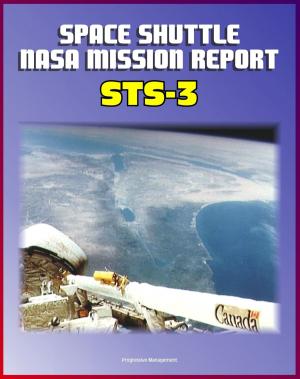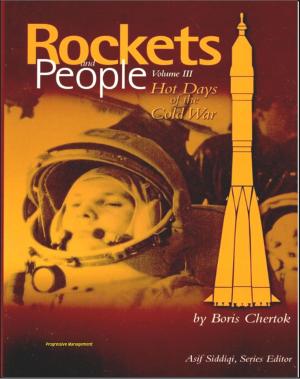The Future of NATO: Russian Relations - or How to Dance with a Bear and Not Get Mauled, Vladimir Putin, Former Soviet Union and Warsaw Pact States, OSCE, Response and Perspectives, Road to Rome
Nonfiction, History, Asian, Former Soviet Republics, Russia| Author: | Progressive Management | ISBN: | 9781370850594 |
| Publisher: | Progressive Management | Publication: | September 27, 2016 |
| Imprint: | Smashwords Edition | Language: | English |
| Author: | Progressive Management |
| ISBN: | 9781370850594 |
| Publisher: | Progressive Management |
| Publication: | September 27, 2016 |
| Imprint: | Smashwords Edition |
| Language: | English |
This important report has been professionally converted for accurate flowing-text e-book format reproduction. Since the dissolution of the Soviet Union and the Warsaw Pact, NATO has enlarged its membership twice with countries formerly under Soviet influence and control and, as of this writing, is preparing to begin the process for a third expansion. Russia has watched the borders of NATO creep ever closer to its own but has generally been powerless to prevent it. Although NATO has taken pains to include and consult with Russia regarding its actions and future plans, former air attache to the US Embassy in Moscow Gordon Hendrickson contends the Kremlin cannot reasonably be expected to continue to watch NATO's eastward expansion without eventually pushing back hard. Without question, many significant issues and challenges must still be solved before enlarging the alliance once again. In light of this, the author says NATO must work rigorously to continue to keep Russia engaged in a productive and mutually beneficial relationship as both sides work through the future obstacles that inevitably will arise in the NATO-Russian relationship.
Although the relationship is continuing to evolve, Hendrickson's research led him to the conclusion that, in order to keep Russia reassured and working productively with NATO, there are a number of concrete actions the alliance can and must take to avoid squandering the historic opportunity before it.
NATO leaders continue to stress that the "door remains open" to even more new members, provided they are willing and able to meet NATO's entrance requirements. As NATO prepares for another likely round of enlargement within the next few years, its leaders must seriously consider the impact yet another growth eastward will have on the Russian Federation. Moscow has thus far accepted with relatively little protest NATO's last two expansion rounds, which encompassed countries formerly under Soviet influence. This was partly due to Russia's inability to effectively prevent the alliance from expanding, as well as the effort alliance leaders made to keep Russia engaged with and included in NATO affairs. However, in considering another round of new members, which undoubtedly will include countries directly bordering the Russian Federation, NATO leaders will have to redouble their efforts and creativity to allay Russian fears of Western encirclement or encroachment. This paper looks at several concrete actions the alliance can take in an effort to reach that goal.
Chapters 2 and 3 provide a history and overview of the development of NATO-Russian relations over the past 15 years since the dissolution of the Soviet Union, along with a survey of Russian attitudes and responses. Chapter 4 examines some of the major contentious issues now facing the two sides, with a particular focus on the underlying sources of those problems that will continue to affect future NATO-Russian dealings. Chapter 5 focuses on many of the cooperative programs and successes the alliance and Russia have achieved in the past few years, and chapter 6 deals with the previously mentioned sources of conflict between NATO and Russia and then outlines several concrete actions NATO can take to continue engaging Russia productively and positively, even in light of another probable round of enlargement.
The NATO-Russian relationship is without question one of the most important and pressing issues that affects overall Euro-Atlantic security. It is a relationship that can, and must, survive future tests of differences in policies, actions, and even sometimes values. However, it is a relationship worth fighting for, and leaders from both sides must find a way to work constructively through their differences. The future of Euro-Atlantic security depends on it.
This important report has been professionally converted for accurate flowing-text e-book format reproduction. Since the dissolution of the Soviet Union and the Warsaw Pact, NATO has enlarged its membership twice with countries formerly under Soviet influence and control and, as of this writing, is preparing to begin the process for a third expansion. Russia has watched the borders of NATO creep ever closer to its own but has generally been powerless to prevent it. Although NATO has taken pains to include and consult with Russia regarding its actions and future plans, former air attache to the US Embassy in Moscow Gordon Hendrickson contends the Kremlin cannot reasonably be expected to continue to watch NATO's eastward expansion without eventually pushing back hard. Without question, many significant issues and challenges must still be solved before enlarging the alliance once again. In light of this, the author says NATO must work rigorously to continue to keep Russia engaged in a productive and mutually beneficial relationship as both sides work through the future obstacles that inevitably will arise in the NATO-Russian relationship.
Although the relationship is continuing to evolve, Hendrickson's research led him to the conclusion that, in order to keep Russia reassured and working productively with NATO, there are a number of concrete actions the alliance can and must take to avoid squandering the historic opportunity before it.
NATO leaders continue to stress that the "door remains open" to even more new members, provided they are willing and able to meet NATO's entrance requirements. As NATO prepares for another likely round of enlargement within the next few years, its leaders must seriously consider the impact yet another growth eastward will have on the Russian Federation. Moscow has thus far accepted with relatively little protest NATO's last two expansion rounds, which encompassed countries formerly under Soviet influence. This was partly due to Russia's inability to effectively prevent the alliance from expanding, as well as the effort alliance leaders made to keep Russia engaged with and included in NATO affairs. However, in considering another round of new members, which undoubtedly will include countries directly bordering the Russian Federation, NATO leaders will have to redouble their efforts and creativity to allay Russian fears of Western encirclement or encroachment. This paper looks at several concrete actions the alliance can take in an effort to reach that goal.
Chapters 2 and 3 provide a history and overview of the development of NATO-Russian relations over the past 15 years since the dissolution of the Soviet Union, along with a survey of Russian attitudes and responses. Chapter 4 examines some of the major contentious issues now facing the two sides, with a particular focus on the underlying sources of those problems that will continue to affect future NATO-Russian dealings. Chapter 5 focuses on many of the cooperative programs and successes the alliance and Russia have achieved in the past few years, and chapter 6 deals with the previously mentioned sources of conflict between NATO and Russia and then outlines several concrete actions NATO can take to continue engaging Russia productively and positively, even in light of another probable round of enlargement.
The NATO-Russian relationship is without question one of the most important and pressing issues that affects overall Euro-Atlantic security. It is a relationship that can, and must, survive future tests of differences in policies, actions, and even sometimes values. However, it is a relationship worth fighting for, and leaders from both sides must find a way to work constructively through their differences. The future of Euro-Atlantic security depends on it.















